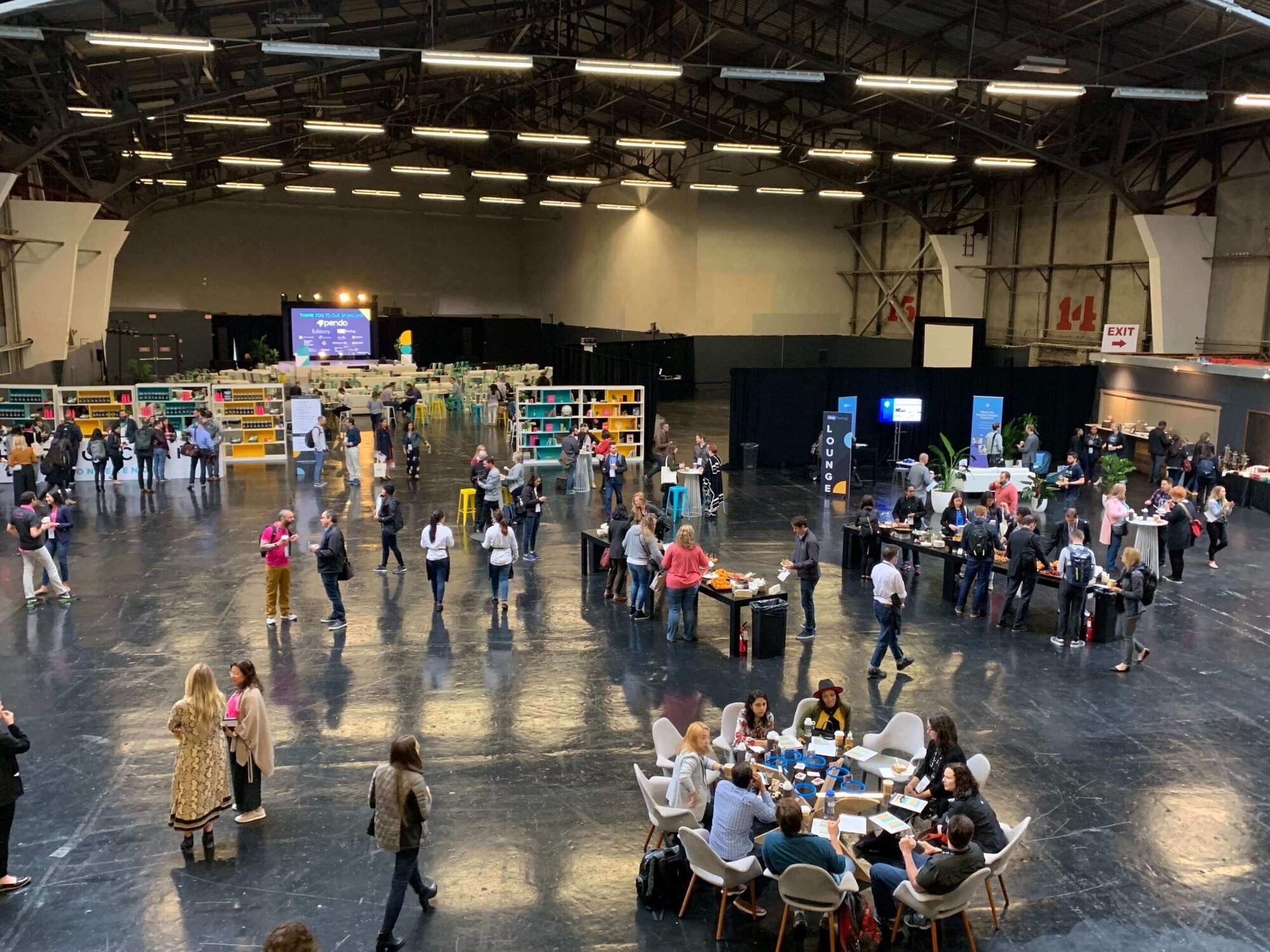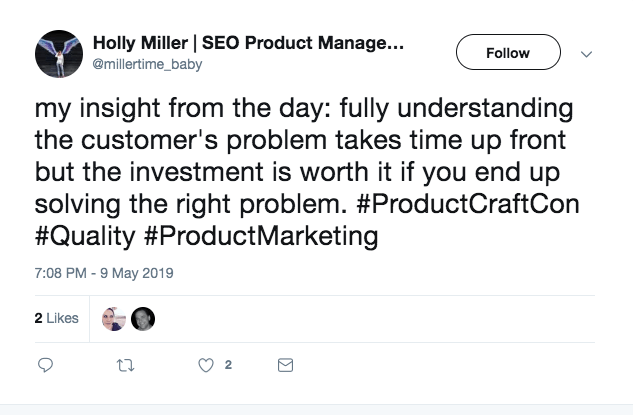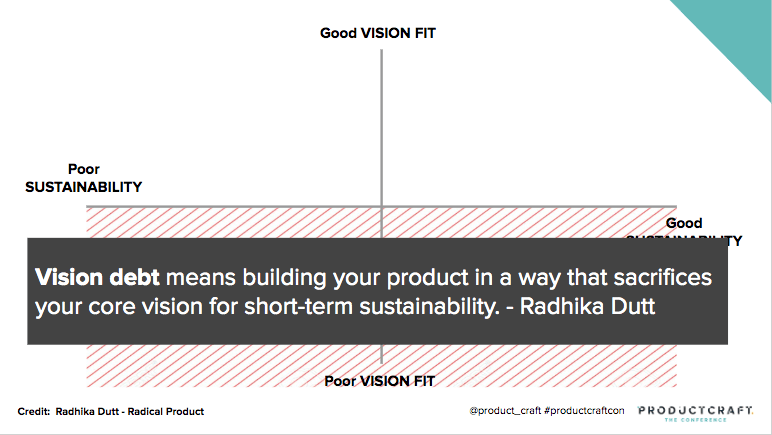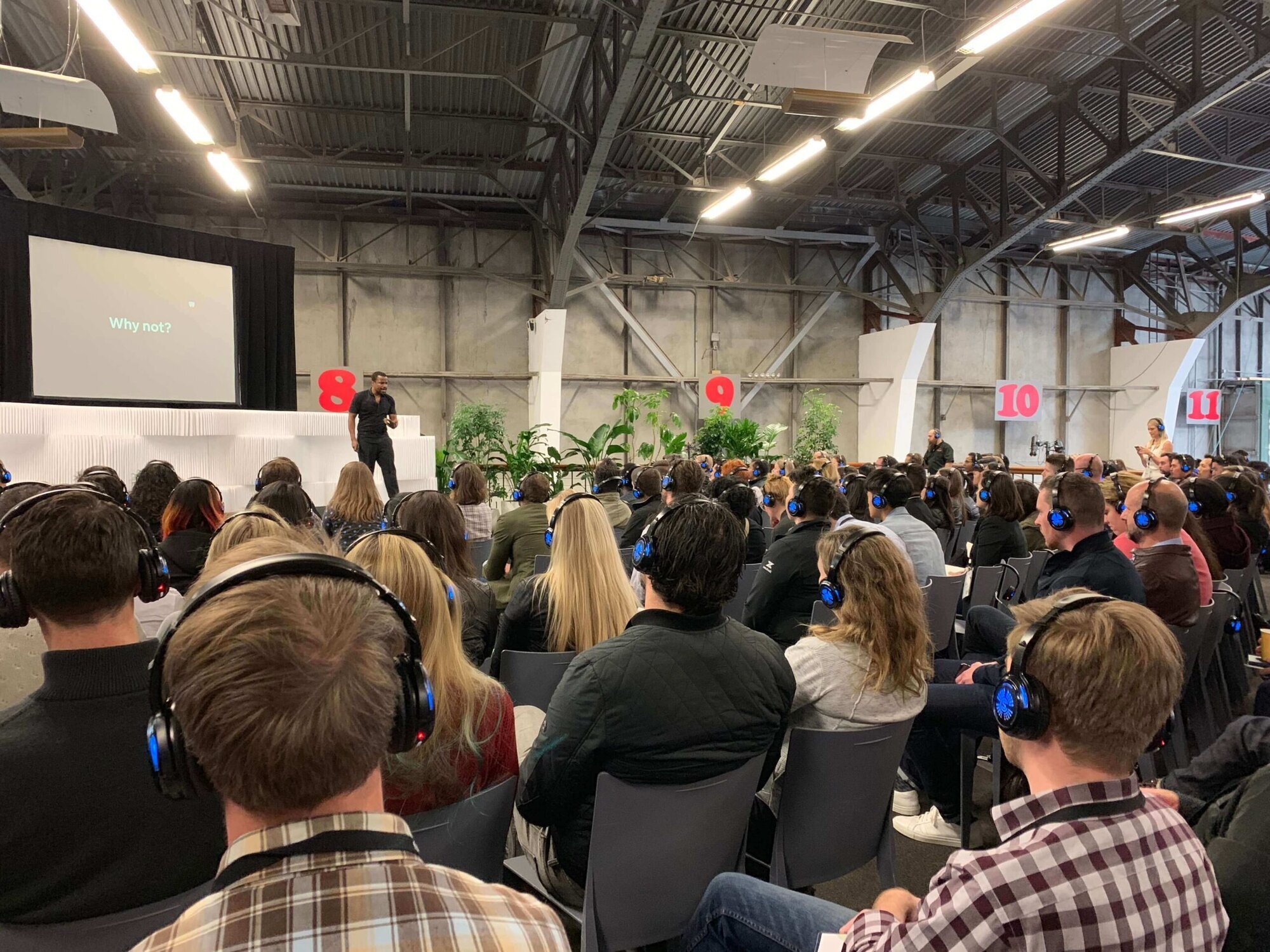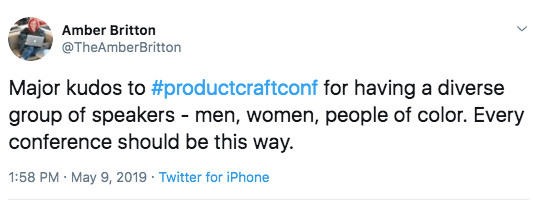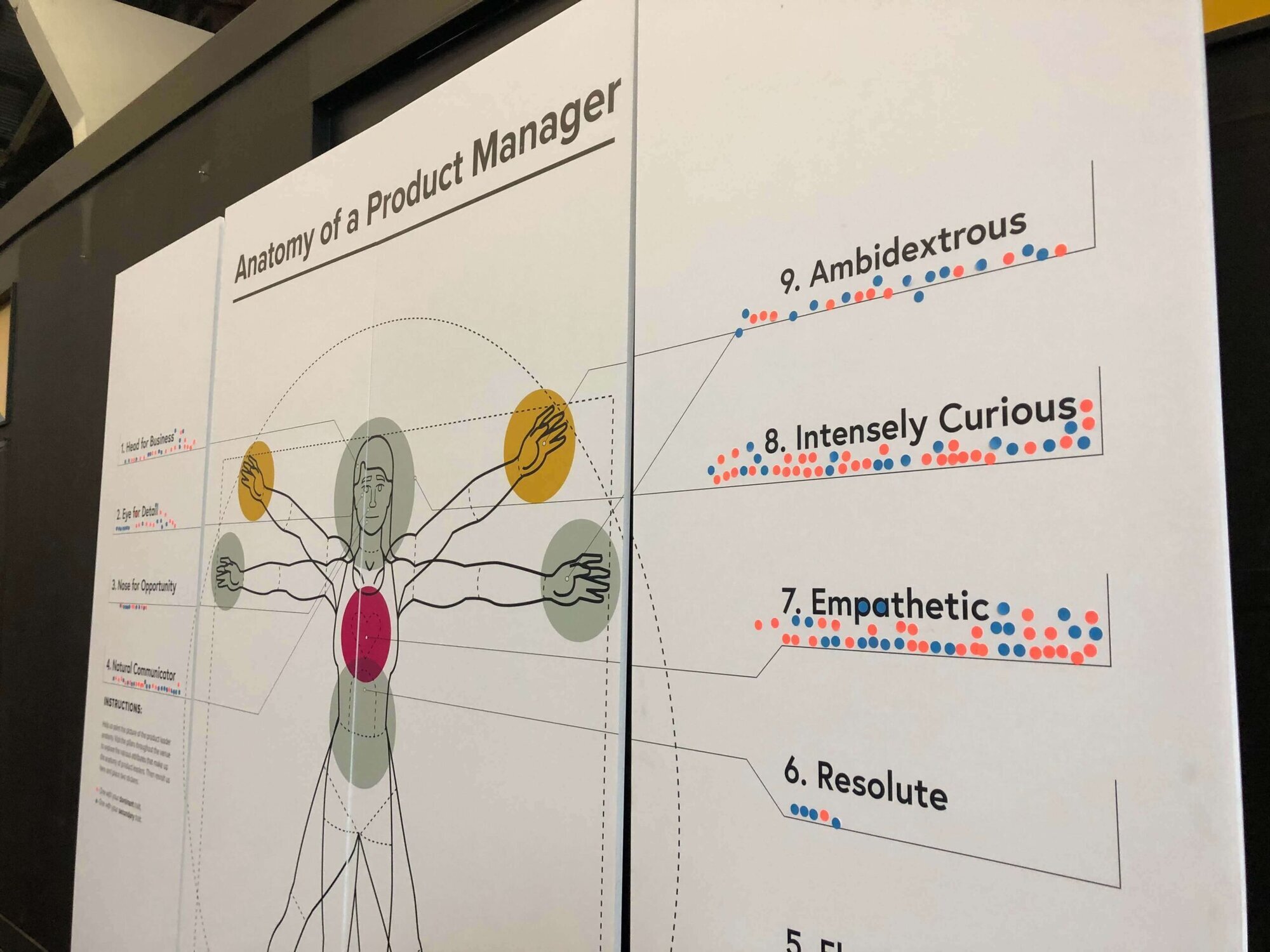If it’s possible to sum up the inaugural ProductCraft: The Conference in a single quote, I’d use this one from a talk by Nextdoor Chief Product Officer Tatyana Mamut.
“A remarkable customer experience starts with heart, intuition, curiosity, play, guts, taste.”
The quote comes from Amazon chief Jeff Bezos in his 2016 letter to shareholders, but it so perfectly articulates a key lesson from the day and the spirit with which we created the conference.
With ProductCraft: The Conference, the team set out to build a truly unique and memorable experience for product managers eager to excel at their craft. The goal was to create a setting ideal for learning, with both tactical and inspirational content from the best in the field. There was painstaking attention to detail, from the speaker mix, conference format (lessons, labs and lounges) and layout of the venue, to the t-shirt design, snack selections, and yacht rock band, Mustache Harbor.
With nearly two dozen sessions, many of which happened concurrently, it was impossible to take in everything, but here’s my best summary of the event.
Key Themes
Start with a story.
By kicking off the day with Guy Raz of the popular NPR podcasts “How I Built This” and “TED Radio Hour,” ProductCraft set the tone for a day of storytelling. Raz shared seven lessons he’s learned from the stories of entrepreneurs like Jim Koch of Sam Adams, James Dyson of the Dyson vacuum and Howard Schultz of Starbucks. He walked the audience through stories of innovation born out of risk-taking, failure, adversity, pivots and extreme kindness, summing it up with a story of his own team of producers going out on their own to build their own podcast.
A culture of risk-taking and innovation inspires others to do the same.
Focus on the customer first.
Call it customer centric or customer obsessed, the customer was the center of discussion at ProductCraft: The Conference. A panel of product leaders from Segment, Twilio, Outreach and Pendo settled on discovering, prioritizing and continuing to solve customer problems over time as key roles of product management. Using customer stories to help make the case for product decisions is a key strategy they deploy.
Mamut offered up Seven Habits of Customer-Centric Companies born from her experiences at Procter & Gamble, IDEO, Facebook, Amazon and now Nextdoor, where she’s just a month on the job. She told the audience she’s in between immersive experiences with users of the private social network for neighborhoods—she spent last week on Montana Avenue in Santa Monica and next week, she’ll visit two neighborhoods in Europe.
“I’m not just watching them use the app,” she says. “But having coffee and brunch with them, interacting with local business owners and understanding what community means to them.”
Put process around innovation.
And finally, true innovation requires some process. As Jen Dante of Square would say, there’s no single process or framework that works for everyone every time. Product management is about being agile and finding a process that works for the team and the product in the right context.
Pendo Chief Product Officer Brian Crofts laid out a framework for how to think through and decide whether to take on a product rewrite—starting by considering sustainability of the business and vision debt on opposite axes, researching the heck out of companies who’ve been through rewrites before and expecting a “Messy Middle” of joy and pain as you work gradually toward a relaunch.
And Maiken Møller-Hansen of Amazon’s Alexa Mobile team walked attendees through Amazon’s Working Backwards process for new product development. First write the press release you envision would describe the product to your customers and the world, then address the FAQs you expect will be asked about that product, and create some visuals to help cast the vision. Put it all together in a six-page memo.
Then host a “study hall” for everyone to read the memo together and then hash it out to perfect the idea. She ended by showing how closely that initial press release for Fire TV compared to the final product description on Amazon.com.
Great product management is inclusive.
A lot of effort went into making ProductCraft: The Conference an inclusive setting for every attendee. Balsamiq provided more than a dozen scholarships for underrepresented minorities. A mother’s room was fully equipped for nursing moms at the event.
The lineup included a mix of gender, ethnic background, location and industry. There was a talk by Benjamin Earl Evans of AirBnb on inclusive design. And the team partnered with Women in Product to host a pre-event dinner for female product leaders, and a lounge throughout the event with resume review sessions by LinkedIn. Executive director Anne Cocquyt shared findings of her organization’s inaugural Product Advocacy Study and led an interactive workshop with heads of product at Macy’s and Nuna Inc. to determine best practices for recruiting and building diverse teams.
It was encouraging to see attendees take notice of these efforts.
Product management is interactive and collaborative.
Sponsors played a leading role in a host of interactive sessions from the day. G2Crowd sponsored a Product Stack activity, where PMs wrote on post-it notes the various tools in their arsenal and then shared reviews of their favorites on G2 Crowd.
A conference scavenger hunt led attendees through Product Led Lane to take part in challenges at each sponsor booth. FullStory and UserTesting planned interactive workshops. And Pendo product leaders Christine Itwaru, director of product management, and Adrienne Gajownik, director of product design, hosted small group discussions in the Pendo lounge.
ProductCraft’s own Anatomy of the PM came to life at the conference through a life-sized activity that let PMs plot their most dominant traits. Intense curiosity and empathy appeared to win out.
The team added these experiences to help encourage the type of collaboration required in the product management process.
It all came together in an event that simply worked. The conference sold out with more than 500 attendees. The feedback was overwhelmingly positive. And here at Pendo and ProductCraft, we’re all abuzz with energy to do it again next year. (Want a heads up on early bird tickets for 2020? Click here.)
Thanks to the attendees who took a chance on us, and the speakers, sponsors and vendors that worked alongside us to bring to life something truly special.
